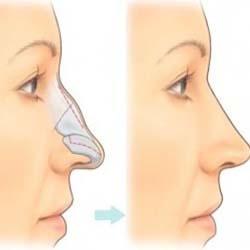
test tube baby
Introduction
For many couples undergoing fertility treatments, particularly the test tube baby method (IVF), the journey can be emotional and physically demanding. While medical procedures play a crucial role in achieving pregnancy, lifestyle choices significantly influence the success rate of IVF. Making healthy changes before and during treatment can enhance fertility and improve the chances of a successful outcome.
1. Maintain a Healthy Weight
Being overweight or underweight can affect hormone balance and ovulation, leading to fertility issues. A healthy BMI (Body Mass Index) increases the chances of successful embryo implantation.
Tips:
- Incorporate a balanced diet with whole grains, lean proteins, fruits, and vegetables.
- Avoid processed foods and high sugar intake.
- Exercise regularly but avoid excessive physical strain.
2. Quit Smoking and Limit Alcohol
Cigarettes and alcohol are known to reduce fertility in both men and women. Smoking can damage eggs and sperm, while alcohol disrupts hormonal balance.
Recommendations:
- Stop smoking at least 3 months before starting IVF treatment.
- Avoid alcohol during the entire IVF process and pregnancy period.
3. Reduce Caffeine Intake
High caffeine consumption is linked to reduced fertility and a lower chance of embryo implantation. Limit caffeine to 200 mg per day, which is roughly equivalent to one cup of coffee.
4. Manage Stress and Anxiety
Stress doesn’t directly cause infertility, but it can interfere with hormonal function and ovulation. IVF procedures can be emotionally overwhelming, so emotional well-being plays a key role.
Stress management techniques:
- Practice yoga or meditation.
- Try breathing exercises or mindfulness therapy.
- Seek counseling or fertility support groups.
5. Improve Sleep Quality
A well-rested body supports hormone production and reproductive health. Aim for 7–8 hours of sleep per night to help your body recover and prepare for fertility treatment.
6. Stay Hydrated
Water plays a vital role in cell function and hormone transport. Dehydration may interfere with ovulation and uterine lining health. Drink at least 8–10 glasses of water daily.
7. Avoid Exposure to Toxins
Environmental toxins found in plastic containers, pesticides, and certain household products can affect reproductive health. These are called endocrine disruptors and may lower fertility.
Precautions:
- Use BPA-free products.
- Eat organic fruits and vegetables when possible.
- Avoid heavy exposure to cleaning chemicals and pollution.
8. Follow Your Doctor’s Instructions for Medication and Injections
IVF involves hormone injections and medications that must be taken at specific times. Following your fertility specialist’s guidance ensures the best chance for egg maturation and embryo development.
9. Ensure Regular Follow-Up with Your Fertility Specialist
Staying in close communication with your IVF doctor helps monitor progress, adjust treatments when necessary, and resolve any complications early. Missing appointments can lead to disruptions in the cycle.
10. Support from Your Partner and Family
Emotional support can reduce stress, boost your morale, and strengthen your resilience. Open communication with your partner and family helps you stay focused and mentally strong throughout the journey.
Conclusion:
Lifestyle changes can greatly influence the outcome of your test tube baby treatment. From balanced nutrition to emotional health and toxin avoidance, these adjustments support your body’s natural functions and complement medical efforts. By taking charge of your daily habits, you’re giving your IVF journey the best chance of success.
For More Details: https://acimc.org/ivf-lahore/






